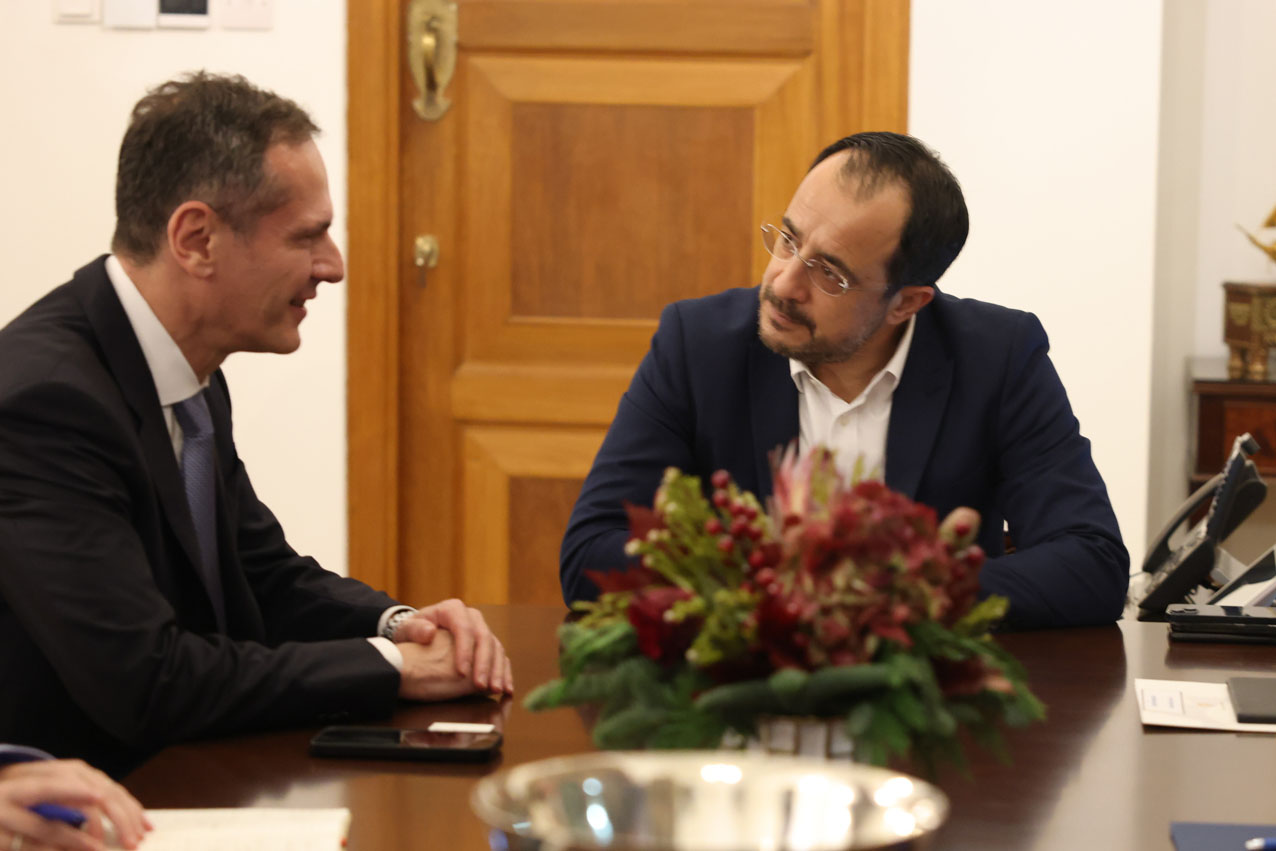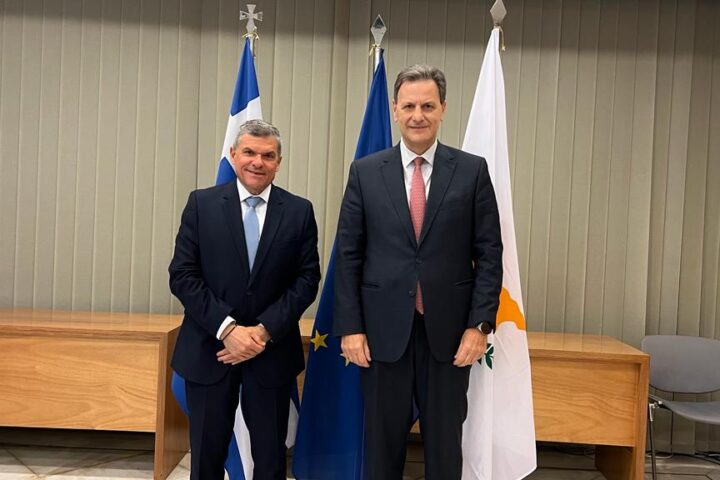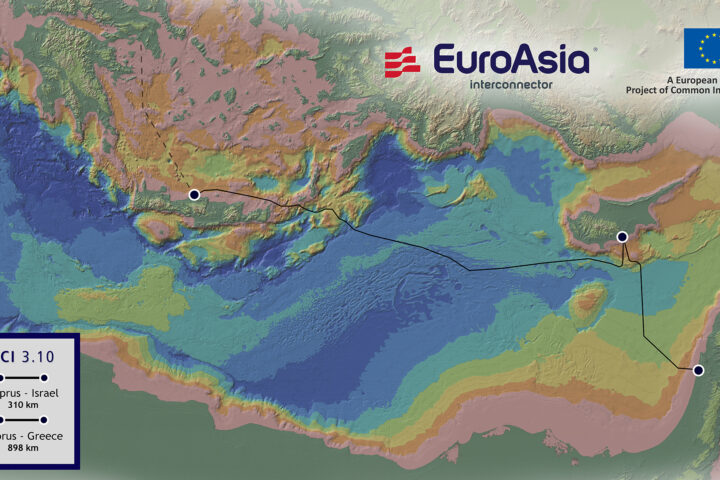Construction of the €1.9 bln section of an electricity cable that will connect the power grids of Greece and Cyprus is slated to begin in the new year, according to news reports, with the project renamed Great Sea Interconnector, that will eventually connect Israel’s power grid as well.
Manousos Manousakis, president and CEO of the new project developer, Greece’s Independent Power Transmission Operator, said that contracts are also expected to be signed with Siemens next year for the construction of converter stations in Crete and in Cyprus, that are key to the flow of electricity through the cable, according to the Associated Press.
Cyprus Energy Minister George Papanastasiou said after a meeting with Manousakis in Nicosia that the Crete-Cyprus section of the 1,208km cable should be ready by 2029 at the latest, thus pushing the delivery date back by a year, from the initial plan.
Technical talks on moving ahead with the Cyprus-Israel section are on hiatus because of the ongoing Israel-Hamas war, according to Papanastasiou.
“We hope that hostilities end so we can pick up consultations where we left them off,” he said, according to the AP report.
Greece’s IPTO recently took over management of the 2,000MW project from the previous promoter EuroAsia Interconnector, which Manousakis called “of strategic significance.”
Papanastasiou said the Cyprus government is expected to make a decision by the end of January on funding the project with a €100 mln capital investment from the Recovery and Resilience Fund (RRF).
The government said the connected power grids would mean cheaper and cleaner energy for Cyprus and help to ensure the nation’s energy security.
RRF on hold
In June, the minister held back on releasing the RRF that had been earmarked by the EU specifically for this project and said that the government needed to review the viability of the entire project. An advisory firm was hired to advise the ministry and the government should have taken a decision in November.
The European Union had already earmarked €657 mln for the project from the ‘Connecting Europe Facility’ and was designated as a ‘project of common interest (PCI), as it would end the energy isolation of Cyprus, the last non-interconnected EU member state.
Coming up with the remainder should not be difficult because several investment funds have expressed interest in contributing financing, Papanastasiou said. However, in August, he had said that coming up with the remainder was not feasible and that the then-developer did not have enough funds.
IPTO initially expressed interest to enter the EuroAsia project with an undisclosed amount, taking a 25% stake, and later raising its involvement to 33%. At the time, IPTO was also expected to have concluded an investment capital from an Israel-based fund.
The cable construction and laying contract has already been concluded with French giant Nexans, ad is expected to be manufactured at the company’s Norway plant. Due to global demand for more electricity interconnectors, Nexans also recently invested in a third cable-laying vessel in order to satisfy the EuroAsia project, labeled by EC President Ursula von der Leyen as the world’s “longest and deepest cable”.
On Friday, Energy Minister George Papanastasiou posted on X saying that he had a “productive meeting” with the CEO of IPTO and the Director of the Cyprus transmission system operator, S. Stavrinos, “to coordinate the smooth completion of the procedures and transfers of licenses to the Great Sea Interconnector. The aim is for construction to start immediately.”
Earlier in December, Papanastasiou and the IPTO’s Manousakis signed a memorandum of understanding on the sidelines of the COP28 conference in Dubai, with the Abu Dhabi national energy company, Abu Dhabi PJSC TAQA Group, to explore the latter’s participation in the electricity cable project.










